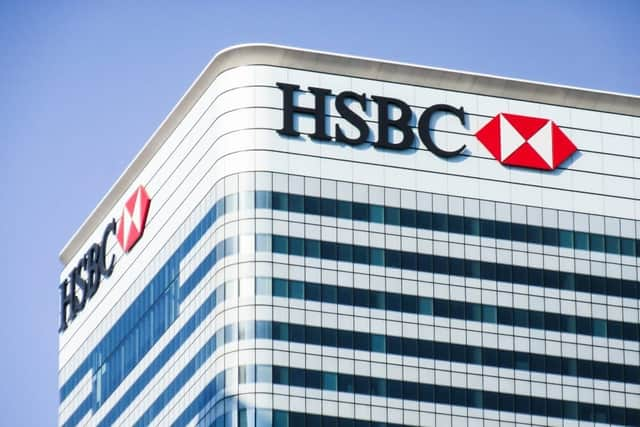HSBC to axe nearly 5,000 jobs - here’s what it means for customers


HSBC is to axe 4,700 jobs following the shock departure of its chief executive, citing the ‘challenging global environment’.
In a call to investors on Monday (5 Aug), the lending giant’s chief financial officer Ewan Stevenson announced that up to two per cent of the bank’s workforce will lose their jobs. He said that the focus is likely to be on senior roles as the company seeks to cut salary costs by around four per cent.
Advertisement
Hide AdAdvertisement
Hide AdHowever, the company has not offered any more detail as to where the cuts will be. As it has not made clear whether branch staff will lose their jobs, customers are expected to be able to carry on banking as usual.
2% of workforce will go
Chief executive John Flint left his role by ‘mutual agreement’ with the board after just 18 months.
The departure followed the announcement of HSBC’s latest half-year results, which showed that pre-tax profits rose 15.8 per cent to $12.4bn (£10.2bn).
The company’s commercial banking boss Noel Quinn will take over as interim chief executive while the lender seeks a permanent replacement. Mr Flint will be assisting with the transition.
Advertisement
Hide AdAdvertisement
Hide AdMr Flint’s departure amid relatively strong results has raised eyebrows among analysts, however Mr Stevenson said that the company’s US operations were not satisfactory.
The outgoing boss is entitled to a year’s salary and is eligible for a bonus based on 2019 performance.
The value of this is unknown, however it is likely that Mr Flint will be entitled to ‘good leaver status’, which means he is entitled to keep long-term shares in the business, among other benefits.
He is entitled to this as his departure is not as a result of misconduct.
Uncertainty in UK and China markets
Advertisement
Hide AdAdvertisement
Hide AdHSBC, which has major operations in both the UK and China, faces uncertainty on both fronts as a result of the UK’s impending departure from the EU and American tariffs imposed on China by Donald Trump.